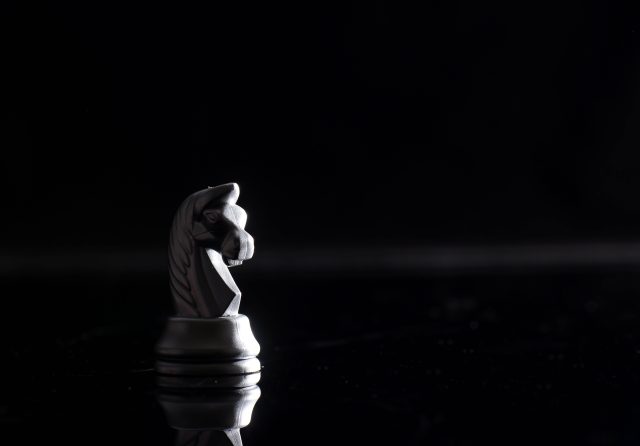
Turkish President Tayyip Erdogan seems to have had enough of conquering the European Union by the winding road to integration into the EU bloc and is adopting the Trojan horse method: he is setting up a party in Germany with which he will take part in June’s European Parliament elections. Coincidentally or not, the act of founding such a party comes shortly after the Sultan of Ankara announced that he was tired of waiting at the door of the European Union.
“Turkey no longer expects anything from the European Union, which has made us wait at its door for 30 years,” Erdogan said, stressing that he would not “tolerate new demands or conditions in the accession process,” an accession he applied for in 1995.
The political party DAVA – Democratic Alliance for Diversity and Awakening – has now been set up on the eve of the European parliamentary elections and is described by the German media as an offshoot of Erdogan’s party, the AKP in Turkey. Among the founders of DAVA, according to the political party’s founding document studied by Bild magazine, is a Hamburg doctor registered with the German Federal Ministry of the Interior as a supporter of the terrorist organisation Hamas, Mustafa Yoldas, another doctor, Ihsan Unlu, a member of the Lower Saxony-based Turkish organisation DITIB, which is under the direct control of the Turkish Service for Religious Affairs, and Fatih Zingal, a lawyer from the Rhineland who has been promoting the AKP in Europe since he was a member of the German SPD. According to Bild, the most likely leader of DAVA will be a self-proclaimed human rights activist, Teyfik Ozcan. The four will also likely be DAVA candidates for the election ballot, Bild claims.
Among the objectives set out in its founding statement, DAVA calls for foreigners to be given the same status as European citizens, to be accepted “as full members of European society”, to combat child poverty and the disadvantages faced by the elderly, and for additional government aid and “a pragmatic and non-ideological refugee policy”.
The establishment of a party close to Erdogan is greeted with concern in Germany, with German journalists quoting politicians as saying this. Amid fears that Turkey could impose its views on the EU, some voices have even called for German security services to monitor DAVA’s activities and its links with Ankara to prevent it from exerting its influence.
“A wing of Erdogan’s party running in the elections here is the last thing we need,” reacted German politician of Turkish origin Cem Özdemir, a well-known critic of Erdogan. European politicians have every reason to fear. DAVA’s chances of success in the European Parliament are considerable if we take into account the large number of Turkish citizens with the right to vote in Germany and the fact that there is no electoral threshold in this member state in the European parliamentary elections.

According to Bild, there are currently 5 million Muslims living in Germany, 3 million of whom are Turks, according to the latest official figures. Of the 5 million, 2.5 million have the right to vote. However, their number could increase in the near future with the amendment of the citizenship law, which comes into force in April. Under the new rules, foreigners can get a German passport after just five years, compared with eight years under the old law, and under exceptional circumstances (such as having learned German thoroughly, outstanding results in education or the professions, or through voluntary work), they can become naturalised after just three years. In addition, they will no longer be obliged to renounce the nationality of their native country.
60% of Turks in Germany are Erdogan supporters
It should also be taken into account that more than 60% of Turks living in Germany are Erdogan supporters. This was demonstrated both in the 2017 constitutional referendum, after which Erdogan transformed Turkey from a parliamentary republic to a presidential one, and in the 2018 and 2023 presidential elections. In the 2017 referendum, some 63% of Turks in Germany voted to support Erdogan’s plans, while the percentage supporting him in Turkey was just 51%.
It was the diaspora that helped Tayyip Erdogan win both the 2018 and 2023 elections. Last year, in Germany, home to the largest Turkish diaspora, the percentage of Erdogan’s supporters increased by about 1 percent compared to the 2018 election. In other European countries with large Turkish communities, Erdogan also won significant percentages that kept him in the presidential seat – from 51.37% of the vote in Sweden to 71.68% in Austria (the country with the second largest Turkish community in Europe).
Ankara’s leader has lashed out at the European Union after Turkey’s recent ECHR ruling, threatening not to meet any more “economic or military” demands.
“If they don’t give up some injustices, such as the imposition of visas, which they use as a latent sanction, if they don’t correct their mistakes (…), they will completely lose the right to express political, social, economic or military expectations from us,” Erdogan warned.
The European Court of Human Rights (ECHR) condemned Turkey after a man was sentenced for membership in an armed organisation solely on the basis of using an encrypted messaging app, ByLock, one considered by the Turkish government to be the main communication tool of the perpetrators of the failed 2016 coup.
Erdogan has made a discordant note inside NATO
Erdogan doesn’t just have a strained relationship with the EU; he has also made a discordant note within NATO, where he opposed Swedish membership. But beyond his beef with the Swedish government, Erdogan has tried to blackmail Europe, which supported Sweden’s NATO bid, with his veto. His main problem with Sweden was that the country had offered asylum to opponents of the Ankara regime, whom it declared terrorists. After months of prevarication, during which time Erdogan tried to get not only a compromise from Sweden but also to unblock the EU accession process, the Ankara parliament ratified the accession treaty late last year.
Turkey and the European Union have tolerated each other for years and, although they don’t like each other, there is an interdependence between the two, mainly economic. But lately Ankara has been losing ground in the European Union, with Brussels becoming even more distant from Turkey, not least because of Erdogan’s cordial relations with Moscow.
The Ankara leader’s authoritarian behaviour has given European politicians the excuse in recent years to avoid giving Turkey a serious response to its membership application. In fact, it was Erdogan himself who gave Brussels the “necessary ammunition” to shut down any talk of membership. In his 20 years at the helm of Turkey, he has arrested journalists and opposition figures, violently suppressed demonstrations and, according to some analysts, mismanaged the country’s economy. Then there’s the Cyprus issue, which Turkey won’t give up because it’s in permanent conflict with EU member Greece.
However, Turkey’s geostrategic position and control over the Mediterranean straits makes it undesirable. And this was seen recently when, invoking the Montreaux Convention, it refused to allow military vessels involved in the Ukraine crisis to pass through these straits. At the same time, thanks to the same geo-strategic position, Turkey is a key transit country for natural gas pipelines from east to west, including from the Caucasus or Russia to southern Europe, the Middle East and Africa, making it a bridge between energy-rich regions and Europe.



 Subscribe
Subscribe